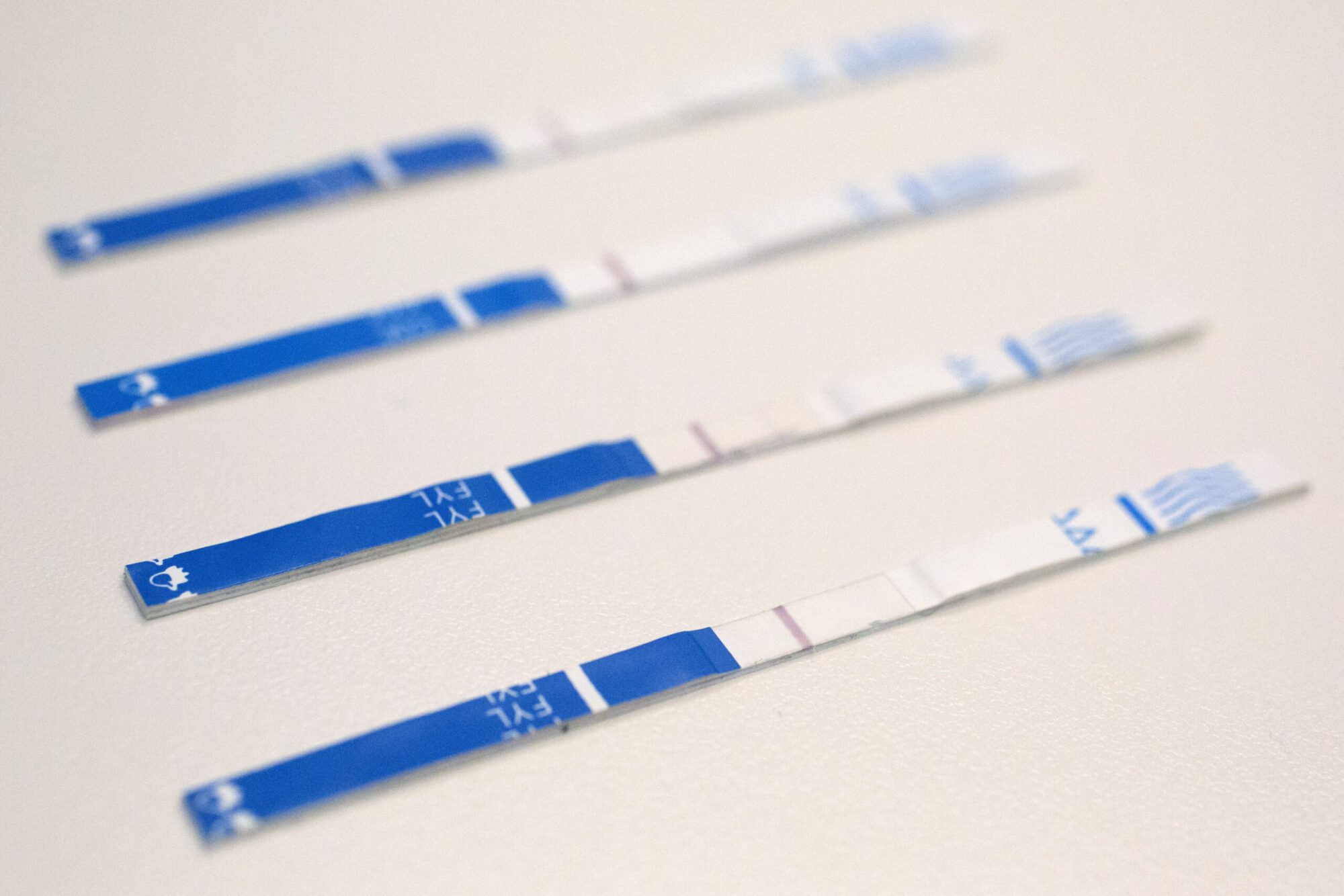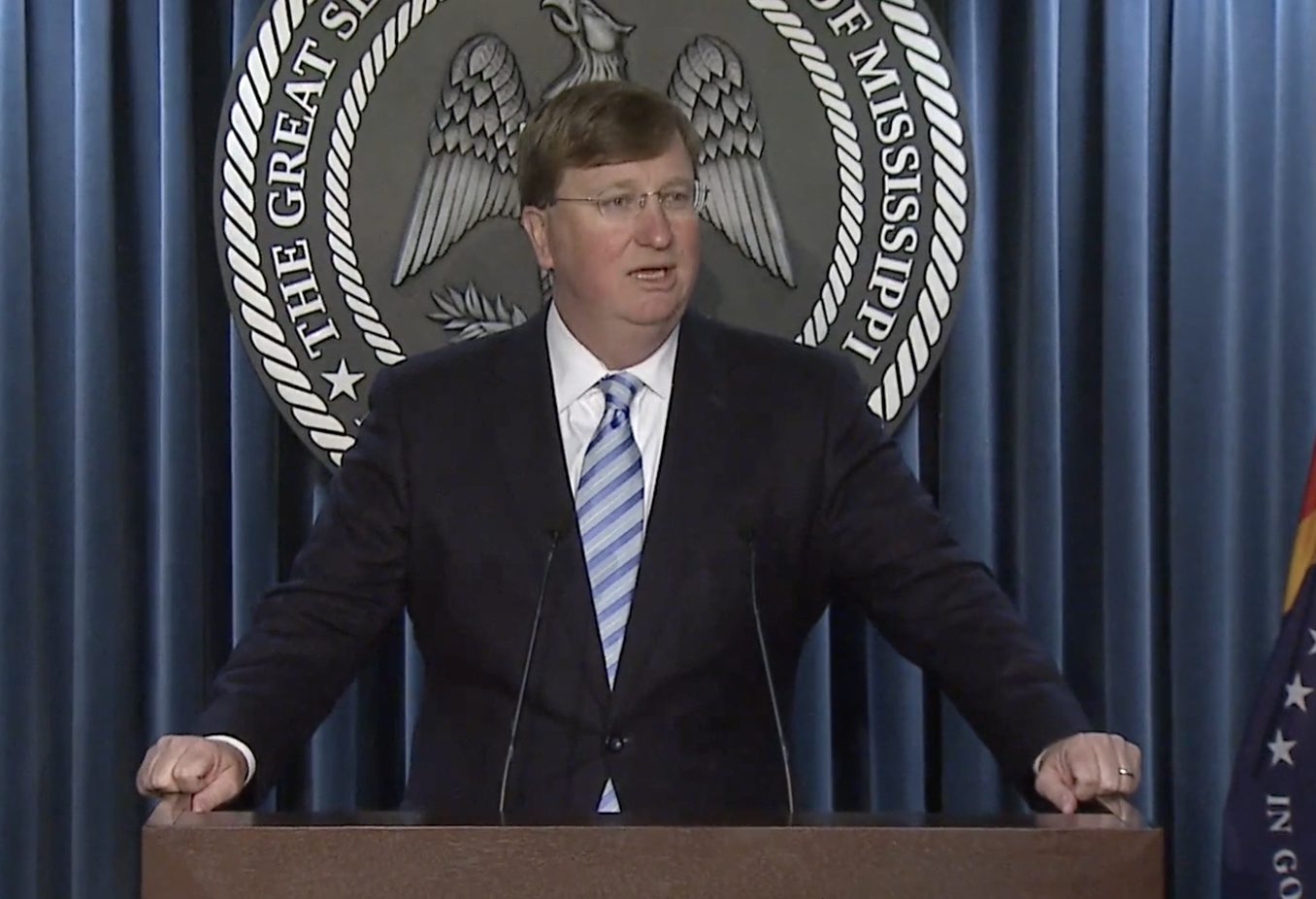
This May 10, 2018 photo shows an arrangement of fentanyl test strips in New York. Sales of fentanyl test strips have exploded as a growing number of overdose-prevention programs hand them out to people who use illicit drugs. (AP Photo/Mark Lennihan)
Governor Reeves signs the bill into law, pointing to the lack of control at the U.S. Southern border as a cause for overdoses related to the drug.
On Monday, Mississippi Governor Tate Reeves (R) signed House Bill 722 into law, decriminalizing fentanyl testing strips in the state. The legislation, authored by State Representative Chris Bell (D), passed the House and Senate overwhelmingly before being sent to the Governor’s desk.
Fentanyl testing strips (FTS) are a method of helping prevent drug overdoses and reducing harm as well as detecting the presence of fentanyl in all different kinds of drugs and drug forms.
Additionally, the strips can provide people who use drugs and the surrounding communities with important information about fentanyl in the drug supply so they can take steps to reduce risk of overdose.
“I’ve signed HB 722 which decriminalizes fentanyl testing strips,” Governor Reeves said. “It’s a sad reality that fentanyl overdoses are skyrocketing as a result of an open border.”
According to the CDC, rates of overdose deaths involving synthetic opioids other than methadone, which includes fentanyl and fentanyl analogs, increased over 56% from 2019 to 2020. The number of overdose deaths involving synthetic opioids in 2020 was more than 18 times the number in 2013. In 2022, the CDC reported in its most recent data that there was an 18% increase from 2021 to 2022 in overdose deaths from synthetic opioids, primarily fentanyl.
Many Republicans, like Governor Reeves, blame the Biden Administration’s failure to close the U.S. Southern border with these increases. Data from the U.S. Customs and Border Patrol (CBP) state that the most illegally sourced fentanyl comes from Mexico and seizures have been rising since 2015. In 2022, seizures rose from 11,200 in 2021 to 14,700, according to CBP data.
State Representative Bell said he is thankful that the Mississippi Governor signed the legislation into the law.
“We are 100% on board with saving lives and being a good shepherd and helping those individuals who are addicted to drugs,” Rep. Bell said. “We are not promoting drug use, but we are definitely promoting saving lives. This bill has absolutely nothing to do with open borders, it has everything to do with saving lives and that’s what we want to do, we want to save lives.”
State Representative Lee Yancey (R), Chairman of the House Drug Policy Committee, said by singing this legislation into law, we are making a small dent in the opioid epidemic in Mississippi and across the country.
“We know that one pill can kill,” Rep. Yancey said. “Now a foolish mistake doesn’t have to be a fatal mistake. The passing of this bill into law will save lives. Praying that our young people will live to fight another day. Thankful for the work of Rep. Chris Bell and for Gov. Tate Reeves signing the bill.”
The CDC, American Medical Association (AMA) and the Mississippi State Medical Association have supported H.B. 722 throughout the session.
In a recent op-ed, Oxford psychiatrist and Mississippi State Medical Association Board of Trustee Dr. Katherine Pannel wrote that fentanyl test strips are an inexpensive, easy to use method to prevent deaths from fentanyl.
“Not only do these strips save lives, but they also put drug dealers out of business,” Pannel states. “Once a user determines their product has been laced, they do not return to that same dealer, and they let all of those in their circle know not to buy from them either. Fentanyl test strips can therefore actually reduce the supply of fentanyl in addition to saving lives.”
Dr. Pannel explains that the strips cost less than a dollar, are easy to use and are extremely effective at detecting the presence of fentanyl. States can even receive federal funding for these strips, so it costs them nothing.











